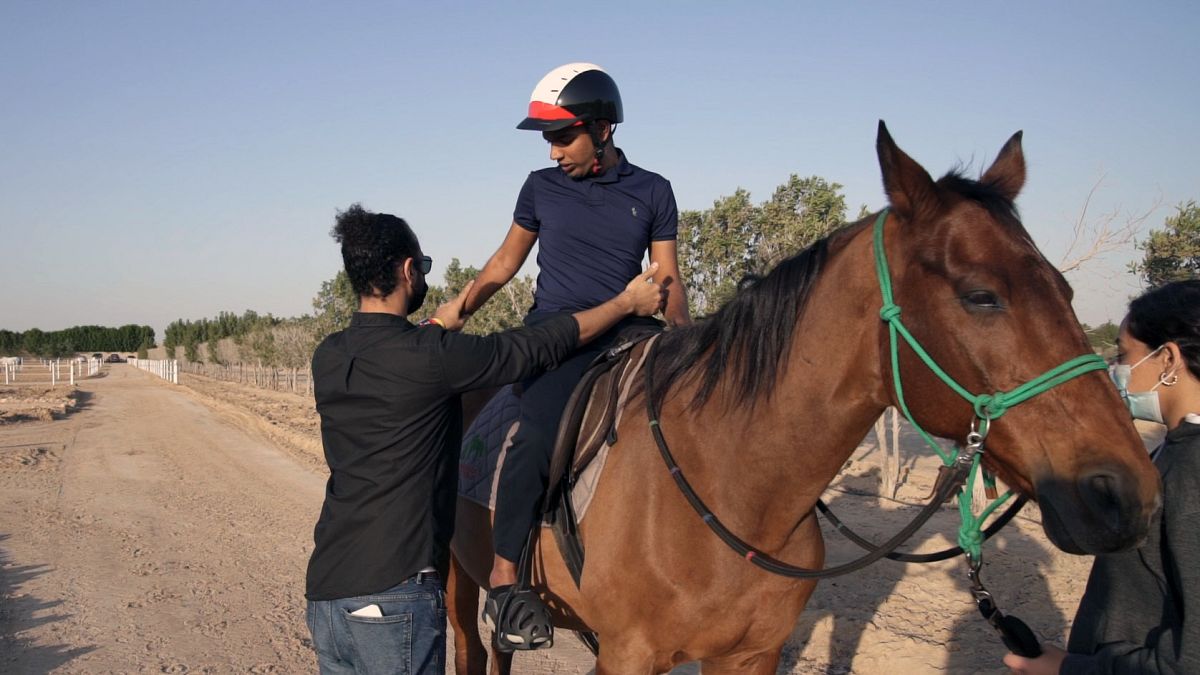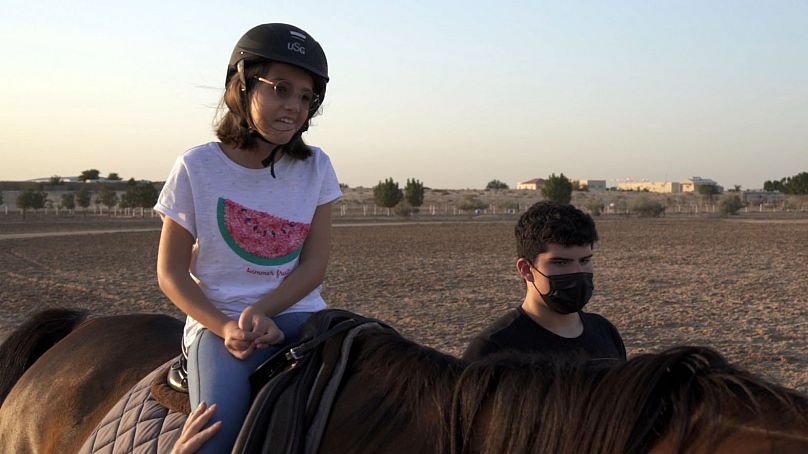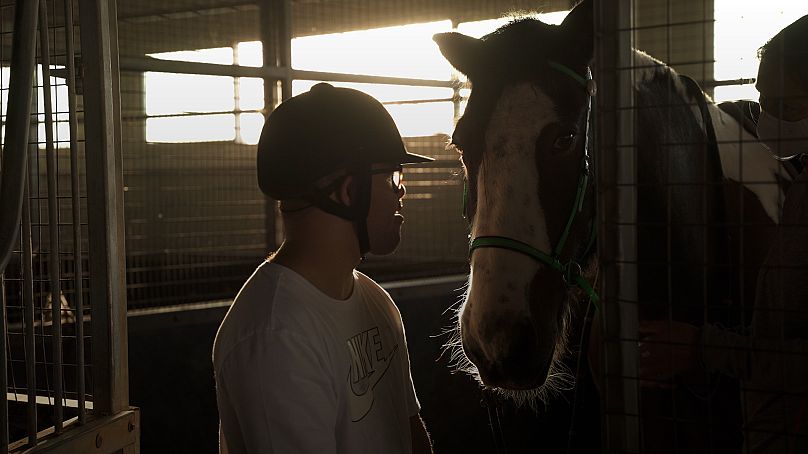Sofia Pasero has Rett syndrome, a rare genetic neurological disorder that affects the way the brain develops, resulting in a progressive loss of motor skills and speech.
There is no cure for Rett syndrome. People with the disorder require support, while treatment focuses on improving communication and movement – and this is where horses are helping.
Al Marmoom Initiative is open to the public and offers those with disabilities equine therapy sessions for free.
Equine therapy, or hippotherapy, is an experiential method of treatment that harnesses interaction between humans and horses to enhance people's physical or emotional wellbeing.
"It’s proven that horses are beneficial in many ways," says Sofia’s mother, Benedetta Pasero. "Sofia’s brain doesn't talk properly with the rest of her body. She doesn't have many friends; children cannot play with her, they don't understand how to play with her. A horse doesn't care. A horse just sees a child."
Sofia has scoliosis, a sideways curvature of the spine, which is one of the most common orthopaedic ailments of those suffering from Rett syndrome. Strengthening the back muscles can help ease the pain and riding horses exercises these muscles.
“The movement, the rocking of the horse, forces Sofia to keep her balance, otherwise she would fall. This improves her back muscles,” explains her mother.
Muhammad Beddier is a physiotherapist who works with patients at Al Marmoom Initiative.
“We're using horses as a tool,” says Muhammad. “It will help the child to adjust their posture on the horse. It will help give them good posture and good core activation.”
When walking, a horse’s pelvis moves in a multi-dimensional way causing the rider to engage muscles on both the anterior (front) and posterior (back) sides of their body; riding also instigates rotation, both medial (towards the midline of the body) and lateral (towards the sides of the body) to help riders develop a stronger core.
Yahya Yusuf, whose son has Down Syndrome, has seen the advantages of equestrian therapy first-hand. “My son’s posture was very bad, he would slouch. Ever since he got into horse riding, everything changed,” says Yahya. “It engages the muscles that you wouldn't use in an everyday activity.”
Improved posture isn’t the only benefit disabled riders experience – there are mental benefits to connecting with horses too.
"The horse is actually a perfect animal,” says Muhammad. “He is highly sensory and neurologically connected with everyone."
Yahya agrees and believes the horses and children at Al Marmoom have a special bond. “[The children] ask for the same horse because they feel it – you know, the energy, the positivity,” says Yahya. “[My son] would look forward to his session. It calms [him] down,” adds Yahya. “It makes [him] feel happy.”








